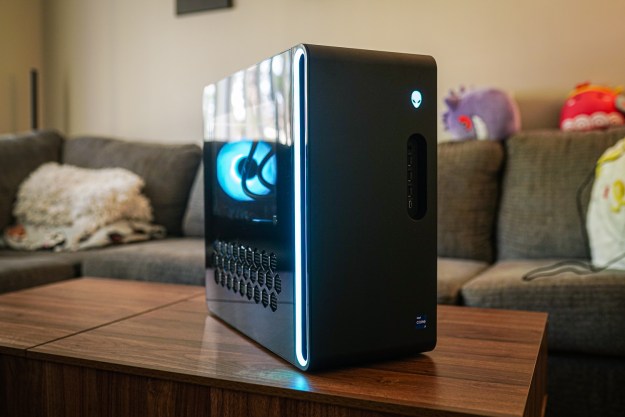 This year’s Web 2.0 theme is The Data Frame, and no other presenter best embodied that idea than emerging startup Singly. The site wants you to understand the power of your data, and give you the tools to harness and utilize it.
This year’s Web 2.0 theme is The Data Frame, and no other presenter best embodied that idea than emerging startup Singly. The site wants you to understand the power of your data, and give you the tools to harness and utilize it.
But first, more about the state of big data. Every player in the digital space is increasingly aware of how much personal information is worth, and consumers are becoming more and more wary of what they do with this and how easily they relinquish it. And it’s powerful stuff; it’s shaping the structures of media and marketing, forcing them to change their strategies and calling it personalization.
Thanks to the evolution of the Internet, mass amounts of consumer information are quite literally at anyone’s fingertips. As European consumer commission Meglena Kuneva knowingly put it back in 2009, “Personal data is the new oil of the Internet and the new currency of the digital world.”
Given its value to its owners and the hopeful many who would love to get their hands on it, it’s vitally important we exercise what control we can over it. Singly wants to put that control squarely and easily into your hands.
Founder Jeremie Miller presented at Web 2.0 yesterday, officially introducing us to Singly. “All this data tells a story,” Miller says. “But what’s important about this is that it’s not about the data. As a developer I get very excited about this data, but when I step back and I think about this as a dreamer, what I’m really excited about is that this is about life.”
This sounded very familiar: Facebook recently introduced Timelines, the new take on profiles that documents your data in such a way to visually showcase your life via the data you’re creating and content you’re consuming. The difference, of course, is that there are some distinct benefits for Facebook in doing this, namely in the form of valuable information about you it can leverage. Singly, however, wants no part of this. That data belongs to one person: You.
“We were watching [Facebook CTO] Bret Taylor’s talk yesterday about privacy settings on Facebook,” says co-founder Simon Murtha-Smith, “And someone said we should ask him where the privacy settings for how Facebook sees my data are.” He has a point, given that the social network has spared no expense educating users on how to curate their privacy settings in order to control what their friends see. But what about what Facebook sees – and what they do with that?
“One thing we’re trying to achieve is that Singly account holders have a clear understanding about what they’re doing with their data, and that it’s theirs entirely, and entirely in their control. That it’s not used in any other way.”
Make no mistake, Singly is not just another social network, and it has no aspirations to be. Basically put, Singly is a platform for you to manage your online life. It’s a digital home where you can save or pull and push data to and from via developer apps.

“It’s not that they are acting evil or anything like that,” he says. “Really, the fundamental problem is they have to make a decision on behalf of hundreds of millions of users all at once, based on what they think is best for everybody.”
Secondly, Singly wants to safeguard your digital valuables. If you can, try to imagine the hoard of scrapbook-like information you have online. Your photos, your address book, personal emails—if something slips through the cracks, it could be gone forever. Singly holds on to this.
So how is the site accomplishing all this? At the moment, Singly has laid the groundwork for what will become its future product. It’s removed the technical difficulties that stand in the way of its operations and opened its doors to developers, who are now working to create the apps that will enable consumers to manage their data. At the moment, Murtha-Smith says Singly is more like a “playground than a construction zone” as developers work on HTML and javascript applications.
Despite its technical, back-end-focused start, this is going to be a tool for the masses. “It’s really going to be for everyone.” The team says it’s something they want every generation to be able—and want—to use.

“We don’t want to be just ‘yet another service,’” Murtha-Simon says. He’s right to try and avoid that generalization. There’s a new service to do this and solve that, platforms to help you leverage your social networks or back up your content. But this one might be able to establish significance if it can really give users more control than we’ve previously had, and by showing us entirely how they’re doing it. “Everything is open source. We’re trying to do this in a way that it is kind of ‘for the people, by the people.’ All the technology is being built in the open and available for anyone to come in, inspect, and also contribute to. To help shape the way things are made.”
Data is a conversation that is just beginning. We’ve only scraped the surface of how we share, how we communicate, how we manage our Internet identities. And that means we can benefit by establishing a framework that offers up new, accessible tools to consumers.
Editors' Recommendations
- Major tax services are sending your data to Meta and Google
- Twitter apologizes for personal data misuse with timeline alert


